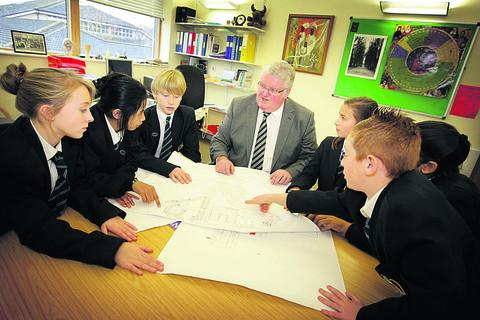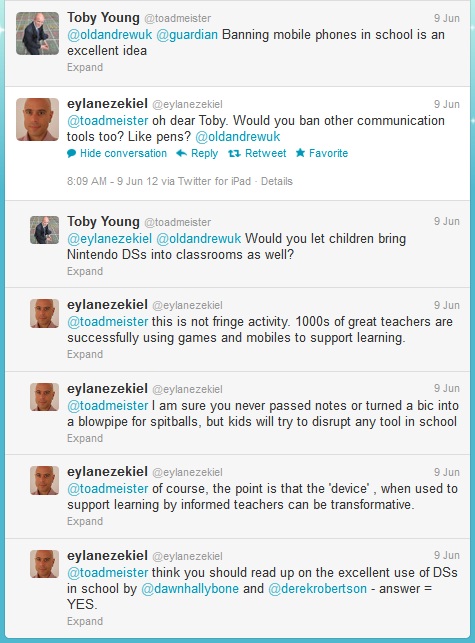We need more education providers – NOW!
There are too few school providers working with free schools, and almost none that are in any way innovative and progressive. This must change.
We need a counterbalance to religious groups and for-profit organisations who are circling closer and closer around our evolving education landscape. Change is needed, but without diversity – we are at risk of going back in time and losing the potential for genuine local positive change in outcomes for our young people.

I am involved in a free school application for a new mainstream secondary school in Oxford – ONSchool. We have a clear vision for a great local school, building on Personalised Learning Relationships, Wellbeing, Community and Digital Technology. We are committed to Project Based Learning and a democratic ethos. The school is needed, as there is a growing need for school places, with over 200 needed by 2014 – growing to over 900 by 2018. We have submitted our detailed application to the Department for Education and are waiting to hear if we are invited to interview. It has been a tough journey so far, and we are still working while we wait.
Although we know that there are schools all over the world doing what we want to do already, we recognise the scale of the task before us: IF the Department for Education were to approve our plans. So, we have chosen to follow the school provider model, as our group – passionate and full of experience and expertise to offer the opening of a school though we are – recognise that we need the support of an expert organisation to support the opening of a school that delivers on our vision and ethos from Day 1.
The steering group see ourselves as, in part, a governing body in waiting – and want to get on with opening this much needed school with as little fuss and fanfare as possible. We are in it for the kids – not for our egos (unlike some, we have no books to sell or media profile to grow!)
People like Toby Blume have written, in compelling terms, about how hard the process of opening a free school is for ‘normal’ people. And, even if we had sufficient expertise in our team to open and run a school, we felt that there was significant strength to be gained in this model. We believe that the idea of holding a provider to account and working in partnership to deliver our ethos and vision is a powerful driver for ongoing development (iteration) in the way that ONSchool would serve the community.
I know there are people who have fears about ‘for profit’ organisation using this as a back door into state education. We share many of these concerns. Yet, at the moment, most of these fears are unfounded. No school provider working with a free school can turn a profit on these contracts, yet! But this might change after the next election. We hope to secure a provider while we have the ‘upper hand’ in the negotiations – and to find an expert group to work with us that share our vision and are not just in it ‘for the money’.
Which brings me to my complaint. Where is the choice?
We have spoken to Pearson and Kunskapsskolan, who come closest to matching our vision for education – but we’d like more choice! Pearson have helped us, on a pro-bono basis – and they have been brilliant. We’d love them to put themselves forward, if we were approved, to be part of the procurement process. That said, we’d like to talk to others – and to have more choice for our community and our vision – but we cannot find them!
We are not the only group with this problem. I have spoken to lots of free school groups desperate to work for a more progressive, transparent, democratic and innovative education – but cannot find the help to do this!
Why haven’t education charities, and organisations that support innovation in education got involved? I don’t want to embarrass too many of them – but SURELY groups like Whole Education / Innovation Unit / Cooperative College , and their ilk, should be stepping up? What about universities, the foundations (such as Richard Dawkins Foundation for Reason and Science) and others who ‘believe’ in educational change? Why aren’t more of them stepping up?
Is it about the money? Was (the wonderful and late lamented) Mike Baker right, that the financial returns just are not good enough? This should only bother those organisations whose purpose is to make money!
It is true that there is NO PROFIT to be made in free schools – but rather than bemoan the fact that for-profits are trying to fill this gap – we should be asking why the non-commercial organisations are not stepping in!
In the ‘academisation’ ‘market’, church groups are taking miniscule service charges for being involved in the running of schools – supporting school independence and local vision and providing essential services.
Clearly, they are doing this because they want a foothold for god, and faith, in schools, and the lives of our young people.
Why aren’t those organisations that ‘believe’ in progressive values and a modern education committing themselves as much as the religious communities?
Is it about the free schools policy and the reputational issues of getting involved? Mr Gove, and his party, are no longer the only supporters of free schools and the Labour party looks set to continue the policy. There is cross party support for introducing innovation into the school system.
Surely organisations that encourage schools to take risks and harness their independence (like the Innovation Unit) should be ‘walking the walk’!
I think that this hesitancy, this fear, this unwillingness to put resource and commitment behind a chance for substantial positive change risks destroying a genuine and essential energy that could significantly improve our education system.
We want more choice for potential school providers.
So – what exactly do we, in the ONSchool team, want?
We want an ethical organisation that understands our commitment to community, transparency and to cooperative governance principles.
We want an expert organisation that can bring a track record in applying personalised education and maintaining innovation.
We want an active organisation that uses digital media to exceptional effect – who are already part of communities of practice on Twitter building on switched on events like Teachmeets.
We want an aware organisation that understands our commitment to wellbeing- as a taught programme to improve the outcomes for our young people and their futures – not just as a way to deal with kids when things ‘go wrong’.
We want an organisation that will take the time to commit to our local vision for ONSchool – not at the expense of local existing provision but in partnership with Oxfordshire’s educators.
We want a committed organisation that is in this for the education of children – and they should get a fair financial return for their input. We are not biased against commercial organisations – and will chose an organisation based on their capability to support our vision and ethos. That said, given the complexity of the political landscape – would like to be able to talk to those who put our shared vision above financial returns.
So – where are you? Do you work in an organisation that works for educational innovation? Why haven’t your organisation put yourselves forward as a school provider for free schools? I’d love to hear and understand – so please share and comment.






